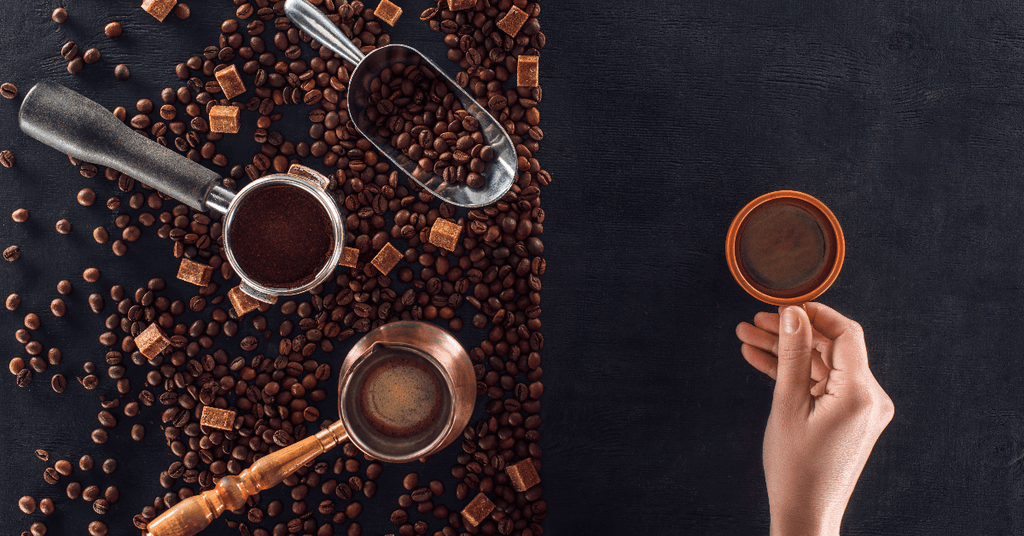
Light Roast vs Dark Roast Coffee: Discover Your Perfect Cup

As coffee enthusiasts, the debate between light roast vs dark roast coffee is an evergreen topic. At Olde Brooklyn Coffee, we understand the nuances that set these two apart. This guide delves deep into their differences, offering insights into their flavor profiles, caffeine levels, roasting processes, and best brewing methods. Whether you’re a fan of light roast coffee or prefer the boldness of dark roast coffee, this page will help you find your perfect cup.
The Roasting Process: Light vs Dark
Coffee roasting is an art that defines the flavor, aroma, and color of the beans. The choice between light roast and dark roast coffee hinges on this crucial process, influencing everything from taste to caffeine content.
Understanding Coffee Roasting
Coffee roasting is an intricate process where green coffee beans are transformed into the richly flavored beans we know. The roasting process involves heating the beans to specific temperatures, which can range from about 350°F to 480°F, depending on the desired roast level. Light roasts typically require a shorter roasting time and lower temperatures, preserving more of the bean's original flavor and higher caffeine content. Dark roasts are achieved at higher temperatures and longer roasting times, resulting in beans with a more intense flavor, darker color, and slightly reduced caffeine levels. Each step in the roasting process influences the beans' final taste profile, aroma, and body.
Light Roast Coffee: A Delicate Complexity
Light roast coffee, known for its subtle and complex flavors, undergoes a shorter roasting time. This level of roasting preserves the bean's original flavors, resulting in a lighter body with more pronounced acidic and fruity notes. It's ideal for coffee drinkers who appreciate nuanced flavors and a brighter cup. Explore Olde Brooklyn Coffee’s selection of the best light roast coffee.
Dark Roast Coffee: Rich and Bold
Dark roast coffee is the result of a longer roasting process. It yields beans that are darker, sometimes oily, with a stronger flavor profile. Dark roasts are known for their low acidity and rich, bold flavors, often with hints of chocolate or caramel, perfect for those who love a robust cup. Explore Olde Brooklyn Coffee’s selection of dark roast coffee offerings here.
Flavor Profiles: Light Roast Coffee vs Dark Roast Coffee
The flavor profile of your coffee is heavily influenced by its roast. Light and dark roasts offer vastly different sensory experiences, catering to diverse palates.
Light Roast: Vibrant and Intricate
Light roast coffee is celebrated for its vibrant acidity and diverse range of flavors. These beans can reveal an array of tasting notes, from citrus to berries, offering a complex and invigorating coffee experience.
Dark Roast: Deep and Smooth
In contrast, dark roast coffee offers a deeper, smoother flavor. The extended roasting time creates beans that provide a comforting and consistent taste, often with hints of chocolate, nuts, and a creamy texture.
Caffeine Levels and Health Impacts
The roast level of coffee also affects its caffeine content and health benefits. Understanding these differences is key to choosing the right coffee for your needs.
Debunking Caffeine Myths In Coffee Roasts
Contrary to popular belief, light roast coffee contains slightly more caffeine than dark roast, as the roasting process burns off some caffeine. Despite a robust flavor, dark roast coffee has slightly less caffeine compared to light roast. However, the difference is marginal and might not significantly affect your caffeine intake.
Health Benefits of Different Roasts
Both light and dark roast coffees have health benefits. Light roasts retain more antioxidants, while dark roasts develop unique compounds during roasting that are beneficial for health.
Brewing Methods for Each Roast Type
The way you brew your coffee can significantly impact its taste and quality. Different methods are better suited for different roasts.
- To fully appreciate light roast coffee, brewing methods that emphasize its delicate flavors are ideal. Pour-over or Aeropress can highlight its complex character.
- For dark roast coffee, methods like the French press or espresso can enhance its rich, bold flavors, making for a satisfying coffee experience.
Choosing Between Light Roast and Dark Roast
Your preference for light roast vs dark roast coffee might depend on various factors:
- If you enjoy a subtle, complex flavor profile with a lighter body, light roast coffee could be your best bet.
- If you prefer a strong, bold taste with a heavier body, dark roast coffee might be more to your liking.



